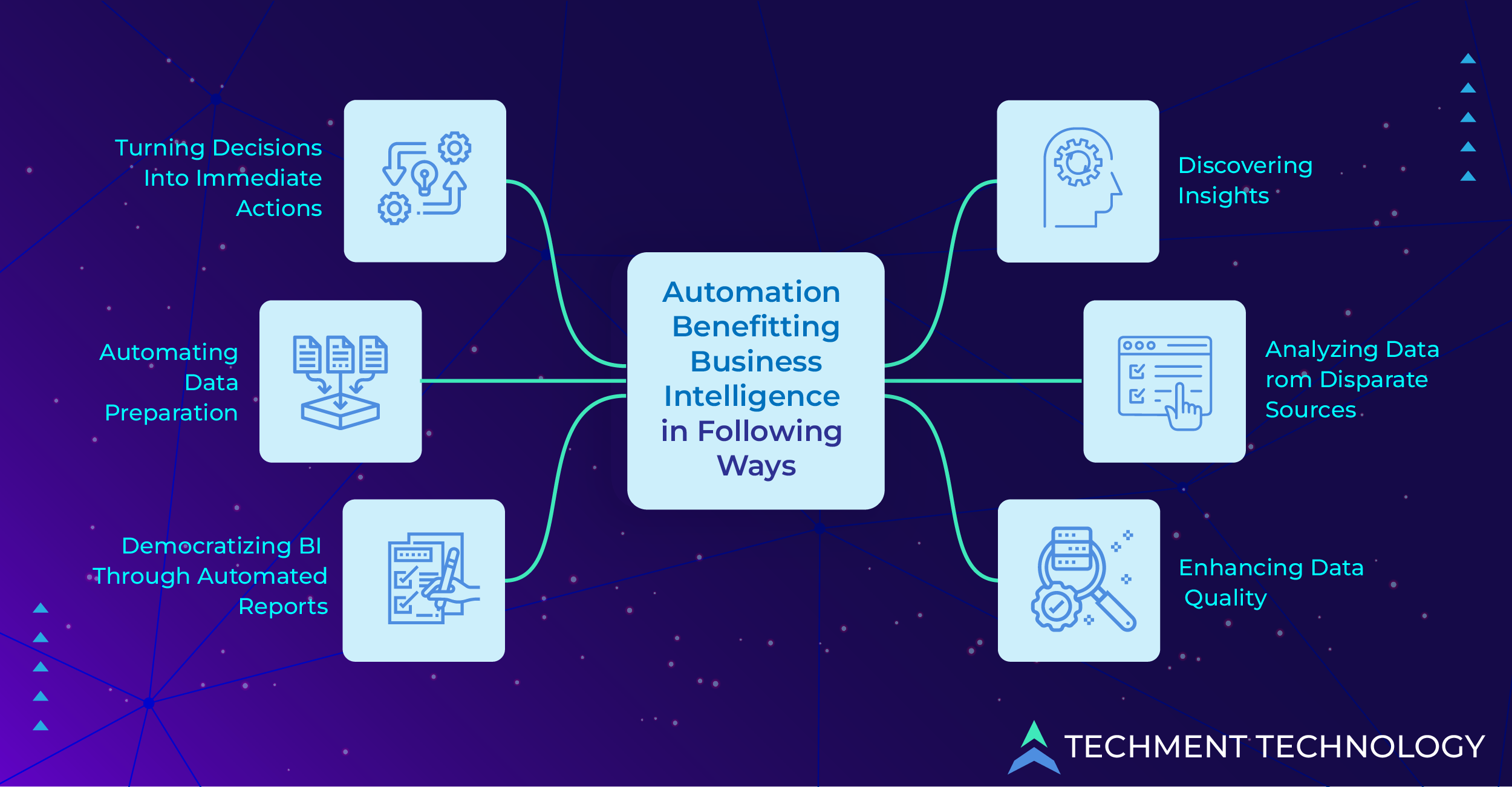Automated Business Intelligence: Streamlining Data for Efficiency


Automated Business Intelligence: Streamlining Data for Efficiency
In the fast-paced world of business, staying ahead requires not only timely decisions but also a deep understanding of data. Automated Business Intelligence (ABI) emerges as a game-changer, revolutionizing the way organizations analyze and utilize their data for enhanced efficiency.
1. The Foundation of Automated Business Intelligence
Automated Business Intelligence is built on the foundation of advanced analytics, data processing, and machine learning. This synergy allows for the automation of traditionally manual and time-consuming tasks, enabling businesses to make data-driven decisions swiftly.
2. Streamlining Data Collection and Processing
One of the primary advantages of ABI is its ability to streamline the data collection and processing pipeline. Automated tools efficiently gather data from various sources, ensuring accuracy and reliability. This streamlined process eliminates the need for manual data entry, reducing errors and saving valuable time.
3. Real-time Insights for Swift Decision-Making
Traditional business intelligence often involves waiting for periodic reports, hindering real-time decision-making. With ABI, organizations gain access to real-time insights. This immediacy empowers decision-makers to respond promptly to market changes, emerging trends, and unexpected challenges.
4. Machine Learning Algorithms Enhance Predictive Analytics
Machine learning algorithms integrated into ABI systems enhance predictive analytics capabilities. These algorithms analyze historical data patterns, identify trends, and provide forecasts, helping businesses anticipate market shifts and customer preferences with greater accuracy.
5. Customized Dashboards for User-Friendly Analytics
ABI platforms offer customizable dashboards that cater to specific business needs. Users can tailor the interface to display key performance indicators (KPIs) and metrics relevant to their roles. This user-friendly approach ensures that employees across different departments can easily access and interpret the information they need.
6. Automated Reporting for Increased Productivity
ABI automates the generation of reports, reducing the time and effort spent on manual reporting tasks. This automation not only increases productivity but also ensures that decision-makers have up-to-date information at their fingertips without the hassle of compiling reports manually.
7. Enhanced Data Security Measures
As data becomes a critical asset for businesses, the importance of data security cannot be overstated. ABI systems often come equipped with advanced security measures, including encryption and access controls, ensuring the confidentiality and integrity of sensitive information.
8. Integration with Business Processes
ABI seamlessly integrates with existing business processes, creating a cohesive and interconnected ecosystem. This integration allows for a smoother flow of information across departments, fostering collaboration and aligning organizational goals with data-driven insights.
9. Cost-Efficiency through Automation
The automation of BI processes inherently leads to cost savings. By reducing manual labor, minimizing errors, and improving overall efficiency, ABI contributes to a more cost-effective approach to business intelligence.
10. The Future Landscape of Automated Business Intelligence
As technology continues to advance, the future of Automated Business Intelligence holds even more promising developments. Integration with emerging technologies such as artificial intelligence, natural language processing, and advanced visualization techniques will further enhance the capabilities of ABI, providing organizations with a competitive edge.
Incorporating Automated Business Intelligence into your business strategy is not just an investment in technology; it’s a strategic move towards agility, efficiency, and sustained growth. Stay informed and embrace the future of data-driven decision-making with ABI.







